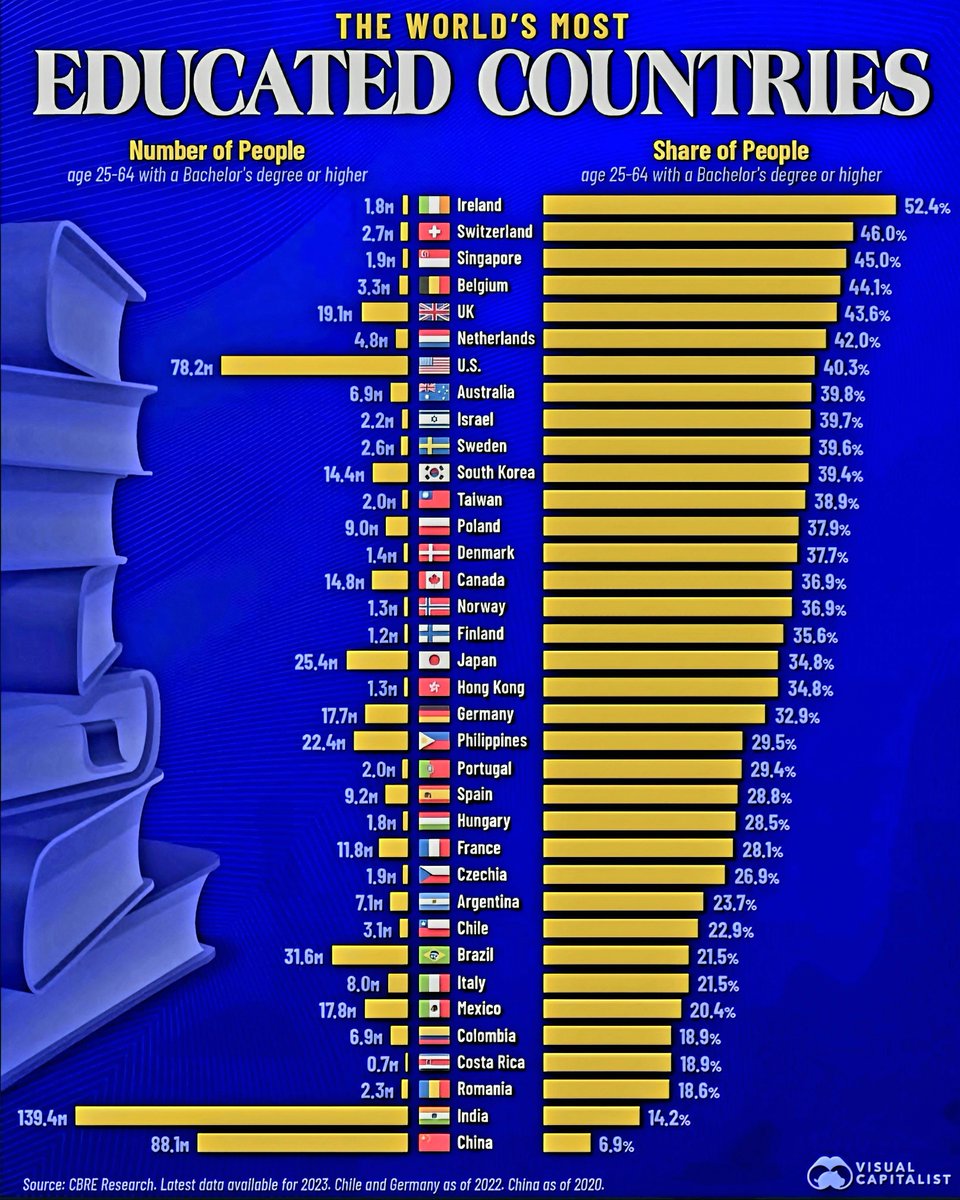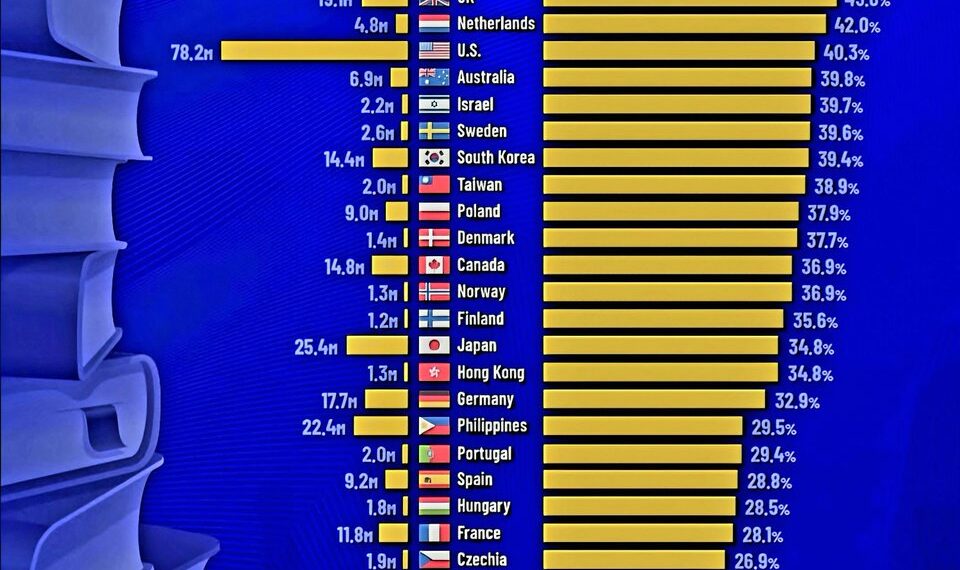Select Language:
The World’s Most Educated Countries: A Closer Look at Global Higher Education Levels 📖
In an era where education plays a crucial role in shaping economies and societies, a new report highlights the countries leading the world in higher education attainment. The data focuses on individuals aged 25 to 64 who hold a bachelor’s degree or higher. Here’s a breakdown of the top 10 most educated countries, showcasing their respective statistics and sheer commitment to higher education.
1. Ireland – 52.4% Hold Degrees
Ireland stands out as a beacon of educational achievement, with 1.8 million individuals in this age group possessing a bachelor’s degree or more. This accounts for an impressive 52.4% of the population, reflecting the country’s investment in education and its significant returns.
2. Switzerland – 46.0% Bachelor’s Holder
Switzerland follows closely with 2.7 million residents holding a bachelor’s or higher, representing 46.0% of this demographic. The Swiss education system is known for its rigor and high standards, leading to a well-educated populace.
3. Singapore – 45.0% Degree Holders
In Singapore, 1.9 million people have achieved a tertiary education, making up 45.0% of the population aged 25 to 64. This small island nation has made significant strides in educational reform and investment, creating a knowledge-based economy.
4. Belgium – 44.1% Graduate Population
Belgium boasts 3.3 million individuals holding at least a bachelor’s degree, accounting for 44.1% of its educated population. The country’s commitment to multilingual education is one of the factors that enhance its educational rankings.
5. United Kingdom – 43.6% Attainment Rate
With 19.1 million graduates, the UK has 43.6% of its population holding a bachelor’s or higher. Renowned universities have made the UK an attractive destination for both local and international students, furthering its educational legacy.
6. Netherlands – 42.0% Educated Individuals
In the Netherlands, 4.8 million people—or 42.0%—hold degrees. The Dutch education system is characterized by its innovation and emphasis on critical thinking, which cultivates a well-equipped workforce.
7. United States – 40.3% Graduate Rate
In the United States, a staggering 78.2 million individuals, representing 40.3%, have attained this level of education. The U.S. is home to many of the world’s leading universities, making it a hub for educational opportunities.
8. Australia – 39.8% Degree Holders
Australia has 6.9 million graduates, which translates to 39.8% of the population in the specified age range. The country’s focus on international students and research has elevated its education system significantly.
9. Israel – 39.7% Higher Education Rate
Israel stands out with 2.2 million citizens holding a higher education degree, accounting for 39.7% of the population. The emphasis on tech and innovation is reflected in the nation’s strong educational framework.
10. Sweden – 39.6% Educated People
In Sweden, 2.6 million people or 39.6% of the population aged 25 to 64 have a bachelor’s degree or more. The Swedish educational system caters to inclusivity and equality, contributing to its high levels of degree attainment.
Additional Insights
While these countries lead in educational attainment, it’s essential to understand the implications. Higher education levels often correlate with lower unemployment rates, higher income potential, and stronger economic performance. Countries investing in their education systems tend to boast a more skilled workforce ready to tackle modern challenges.
Bottom Line
The pursuit of higher education is pivotal in today’s competitive landscape. These countries not only prioritize education but also create environments conducive to learning and growth. As global dynamics continue to evolve, the emphasis on higher education will undeniably shape the future of nations.

Final Thoughts
Education is a powerful tool for personal and societal development. As we watch these countries lead the way in educational attainment, it’s worth considering how this focus on education can be expanded and improved in other parts of the world. The ripple effects of a well-educated population can be profound, impacting virtually every facet of society.






